A growing body of research is constantly giving fuel to the issue of childhood trauma and toxic 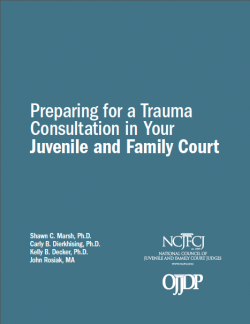 stress—specifically, how they impact health outcomes in the future, and the critical need for juvenile and family courts to become trauma-informed in order to effectively treat these issues. The latest effort to make trauma-informed courts widespread is from the National Council of Juvenile and Family Court Judges (NCJFCJ), which has released “Preparing for a Trauma Consultation in Your Juvenile and Family Court,” a guide for juvenile and family courts to become more trauma-informed.
stress—specifically, how they impact health outcomes in the future, and the critical need for juvenile and family courts to become trauma-informed in order to effectively treat these issues. The latest effort to make trauma-informed courts widespread is from the National Council of Juvenile and Family Court Judges (NCJFCJ), which has released “Preparing for a Trauma Consultation in Your Juvenile and Family Court,” a guide for juvenile and family courts to become more trauma-informed.
The guide outlines why courts need to be trauma-informed and how they approach building a framework, including:
- Elements of a comprehensive and successful trauma-informed framework
- Questions to ask to determine if your juvenile or family court is ready for a trauma consultation
- How to prepare for a consultation
- What to expect during a consultation
- How to put consultation recommendations into action
ACEs Too High, an online news site dedicated to adverse childhood experiences (ACEs), regularly reports on the need for more trauma-informed courts that are reflected in this NCJFCJ guide. A recent article by writer Ed Finkel reports on local courts who are adopting models of trauma-informed care, and other tools available, such as the Think Trauma curriculum for staff members in juvenile correctional facilities.
Finkel also reported on the trauma-informed approach used by judges to administer sustainable solutions for at-risk youth. The article interviews several judges to gain their perspective on trauma-informed courts.
Most recently, Pediatrician and ACEs leader Nadine Burke Harris brought ACEs to the forefront once again on a national stage during her TEDMED talk emphasizing the health impact of childhood trauma, indicating that those who have experienced high levels of this kind of toxic stress are four times more likely to become depressed, and 12 times more likely to attempt suicide.
The NCJFCJ guide is more timely than ever, as more and more public health leaders are adding to existing evidence that emphasizes the need for trauma-informed care. A trauma-informed court can be a safe and effective point of intervention to vulnerable youth and families, and can help coordinate support or treatment to improve outcomes and get young people on a positive path.


 Every week Reclaiming Futures rounds up the latest news on juvenile justice reform, adolescent substance abuse treatment, and teen mental health.
Every week Reclaiming Futures rounds up the latest news on juvenile justice reform, adolescent substance abuse treatment, and teen mental health. 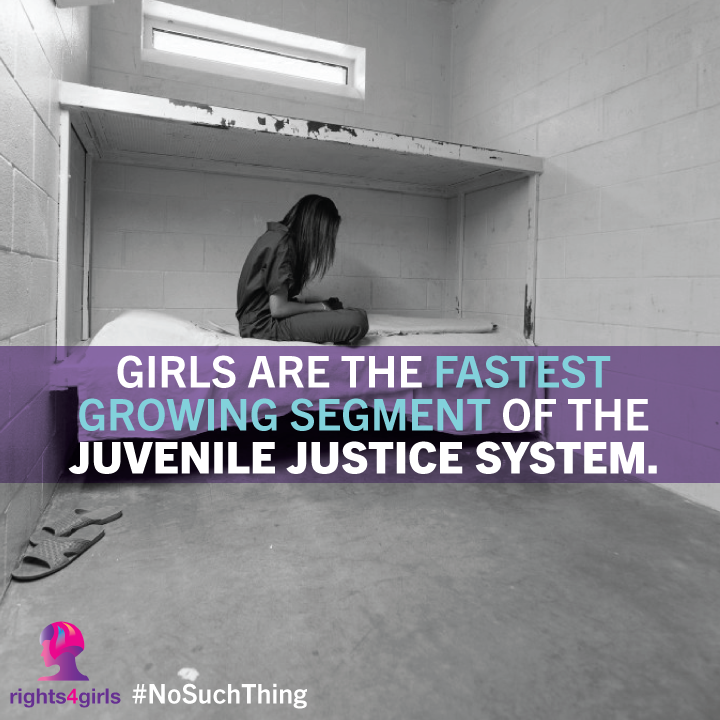
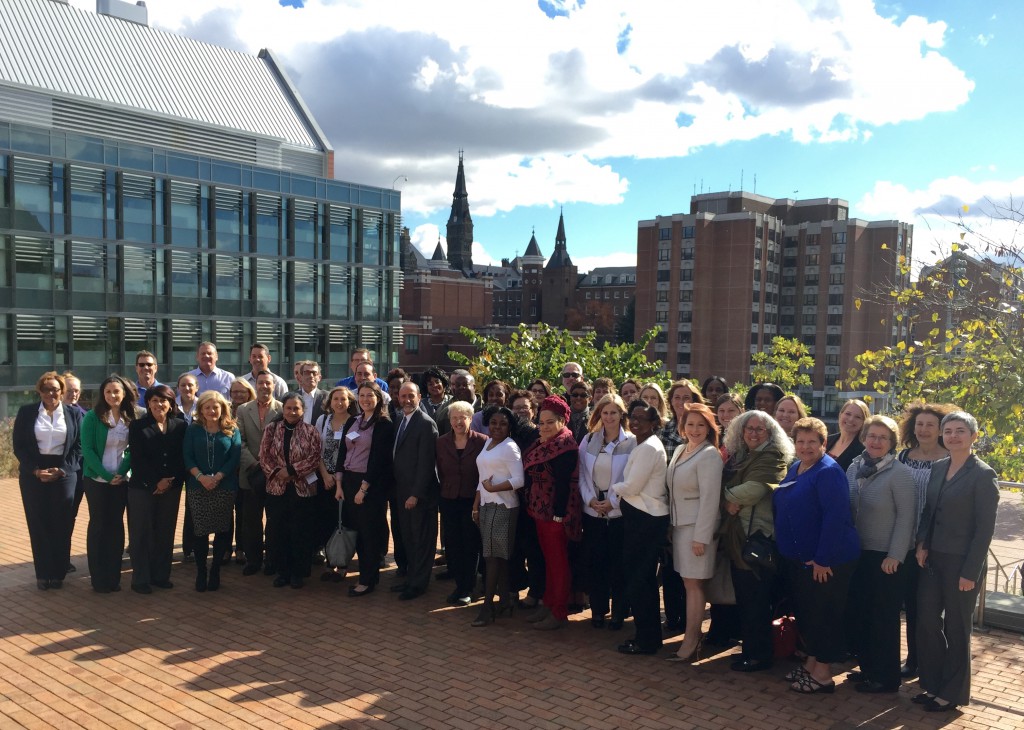 Now through August 21, 2015, The Center for Juvenile Justice Reform (CJJR) at Georgetown University‘s McCourt School of Public Policy is accepting applications for its
Now through August 21, 2015, The Center for Juvenile Justice Reform (CJJR) at Georgetown University‘s McCourt School of Public Policy is accepting applications for its 
 Below you’ll find a selection of the latest grants, jobs, webinars and events posted to our Opportunity Board. Please share the
Below you’ll find a selection of the latest grants, jobs, webinars and events posted to our Opportunity Board. Please share the  Approximately 65 - 70 percent of young people in the justice system meet the criteria for a disability. During time in the system, many children are deprived of the services they need for healthy growth, education, and development—something that negatively impacts children with disabilities more seriously than others.
Approximately 65 - 70 percent of young people in the justice system meet the criteria for a disability. During time in the system, many children are deprived of the services they need for healthy growth, education, and development—something that negatively impacts children with disabilities more seriously than others.
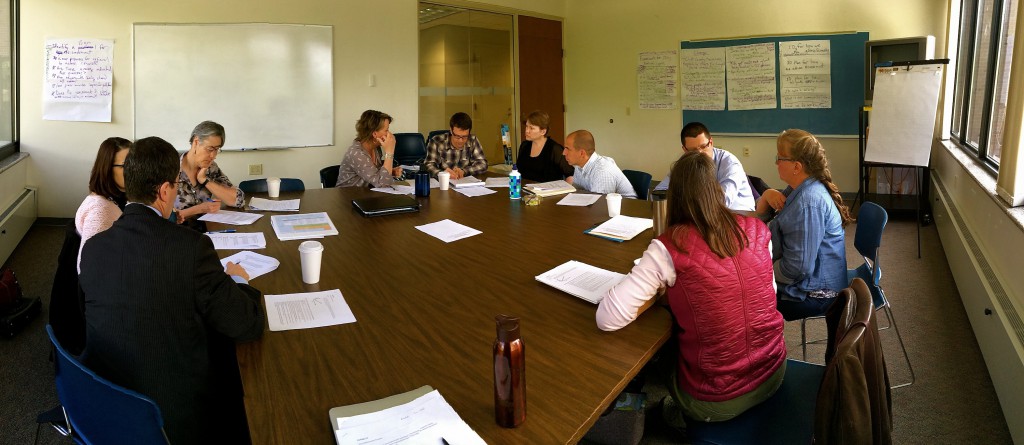
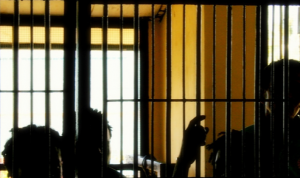 The New Yorker recently published an article, “
The New Yorker recently published an article, “
 A recently released report from Pew Charitable Trusts has emphasized the need for change in the juvenile justice system as it reveals that
A recently released report from Pew Charitable Trusts has emphasized the need for change in the juvenile justice system as it reveals that  stress—specifically, how they impact health outcomes in the future, and the critical need for juvenile and family courts to become trauma-informed in order to effectively treat these issues. The latest effort to make trauma-informed courts widespread is from the
stress—specifically, how they impact health outcomes in the future, and the critical need for juvenile and family courts to become trauma-informed in order to effectively treat these issues. The latest effort to make trauma-informed courts widespread is from the